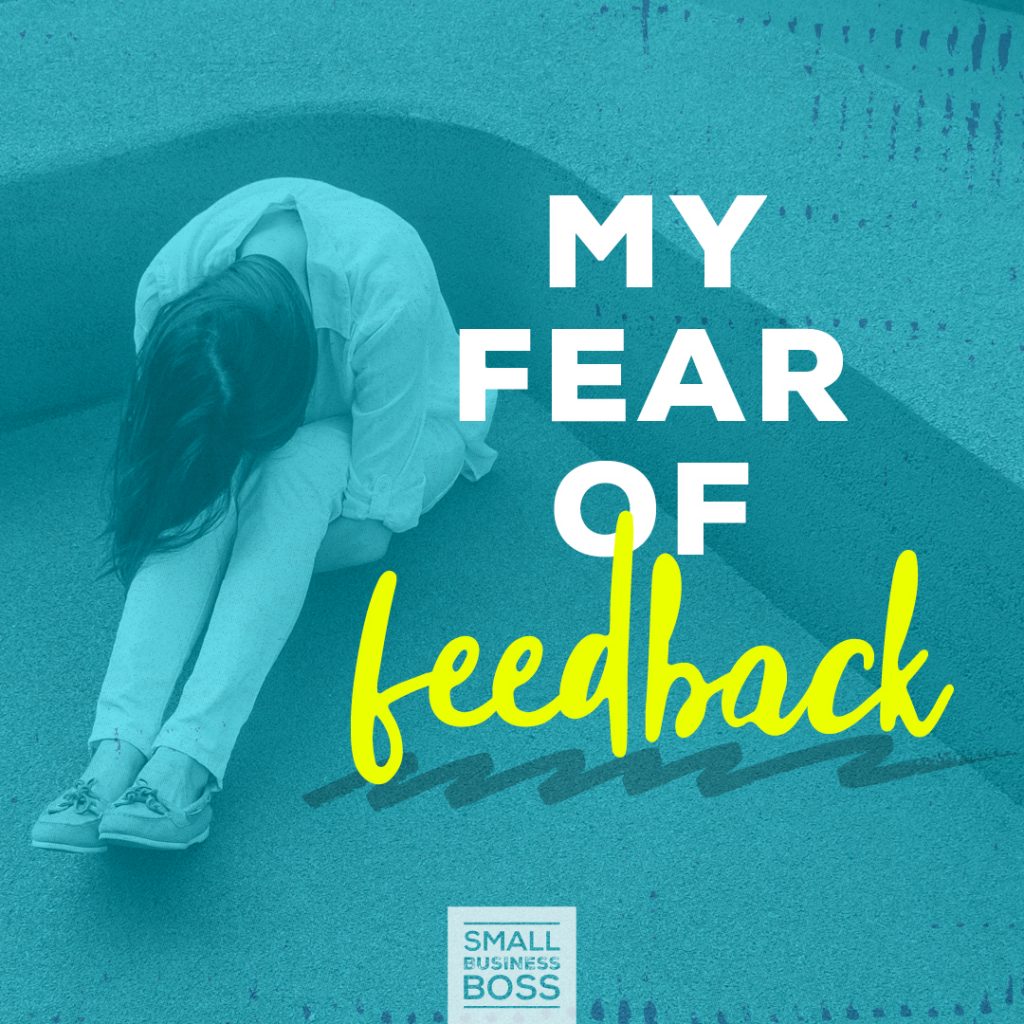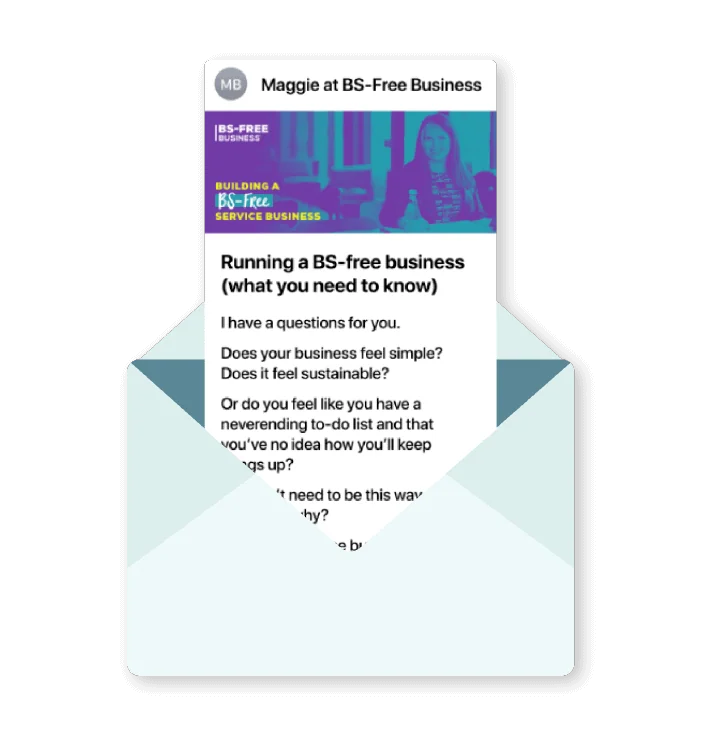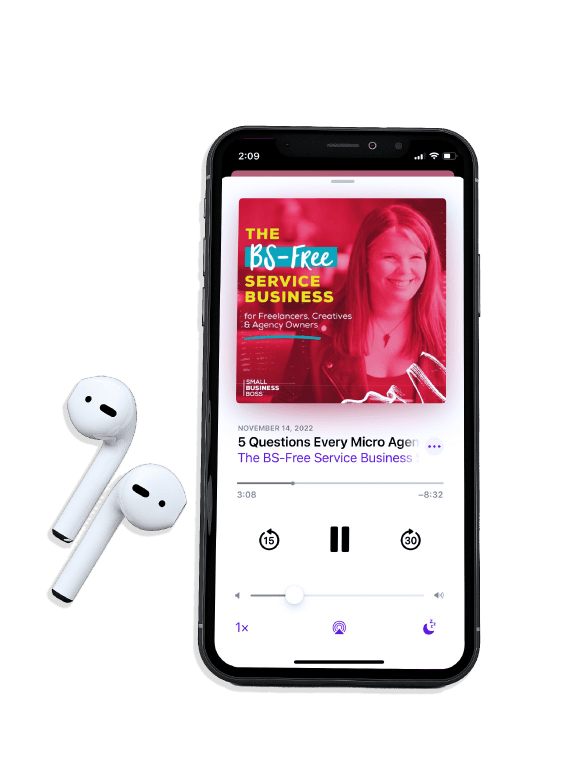
Search the site:
My Fear of Feedback
Years ago, I had a client who delivered “feedback” in the most unkind, unhelpful way you could ever imagine. She was rude, and at times, downright nasty in her delivery. And worst of all, she didn’t know what it was she wanted, so you’d do what she asked and then she’d say it was all kinds of wrong.
While it was a lesson about how I don’t want to be treated by clients, there’s another passenger from that experience I carry with me every day.
I fear feedback.
I’m not sure if it’s that word or what, but I completely dread when a client says they need to give me some feedback. I expect edits, and I embrace them wholeheartedly, but feedback, well, that’s another beast entirely.
I’ve spent the better part of this year working on this, so I don’t get all wigged out when the F-word shows up in my inbox from a client. I’d like to say I’ve got this all figured out, but honestly, some days, I really and truly don’t.
Case in point. Last week, a client wanted to give me “feedback” on a draft of a project I’d personally written and was proud of how it turned out. From the time the call was scheduled to when it happened, I was on high alert. I was all up in my head and preparing for the worst.
And guess what? Most of the feedback was POSITIVE. Yeah, you read that right. They wanted to ask for a few relatively minor changes and then talk about the project.
I’d spent all that time twisting myself up in knots over a big fat nothing.
Assuming Positive Intent
This whole incident was a stark reminder of an amazing lesson I picked up earlier this year during Mel Robbins’ Mindset Reset and via her audiobook Take Control of Your Life.
That lesson? To not immediately cut to the negative or the worst-case scenario, and instead, to assume positive intent until you know otherwise.
It’s so simple, but it’s had a profound impact on my day-to-day life. I can’t even put into words how much learning that has helped with my mindset and mood on an ongoing basis.
And I wanted to share it with you too. Instead of cutting to the “OMG, I’m going to get screwed” or “Oh, here we go. This is going to be bad. Better put my back up,” assuming positive intent can save you from wasting so much time, energy, and quite frankly, your talents on things that are completely unlikely to happen.
For someone like me with default programming that’s negative because I need to “protect” myself, assuming positive intent has been a massive relief. And it’s helping me deal with my fear of feedback.
Learning How to Graciously Receive Feedback
As business owners — and let’s face it, humans — feedback is unavoidable. That means, we’ve got a choice: We need to learn to get good at receiving it, or we’re going to spend a lot of time annoyed, angry, and totally missing the damn point.
Before we go any further, I’m going to ask you to get real with yourself and think about how you really receive feedback. We’re all biased, and most of us tend to think we’re better at it than we actually are.
There are countless things that can come into play when people are sharing with us. Our ego can show up to decide we already know. We can dismiss it because we don’t want to hear it. We can invalidate the other person’s opinion based on something completely trivial.
A common way I see this show up for me is with an objection in an effort to minimize or shut down the feedback with this one phrase:
“Yeah, but…”
Those two tiny words are my ego and discomfort showing up loud and proud. They’re my inability to be gracious in the face of what I don’t want to hear.
Your objection or tell may show up differently, but watch and wait for it. I guarantee you’ll figure out your very own surefire sign that you want to shut things down.
Since that realization, when the “Yeah, buts” show up, I sit with them, and I actively work to shut them the hell up.
Most of all, I make the choice to listen and ask clarifying questions to get more out of the conversation. I don’t necessarily have to like what’s being said, but I owe the other person the respect of being heard.
Because my fear is beside the point. And the person I’m interacting with may be more scared to give me the feedback than I am to receive it. I only have half the story, and by challenging myself to stay open, everyone wins.
The more I do this, the more I learn. The more I see new possibilities.
I challenge you to think about your relationship with feedback and how you can be a better steward of those conversations. You may be surprised by what you discover when fear, ego, or something else isn’t standing in the way.

I’m Maggie Patterson (she/her), and services businesses are my business.
I have 20+ years of experience with client services, am a consultant for agency owners, creatives, and consultants, and vocal advocate for humane business practices rooted in empathy, respect, and trust.
Help Not Hype

Tired of the same old BS business advice?
I got you with weekly emails packed full of proven strategy that makes a real difference in your service business.









